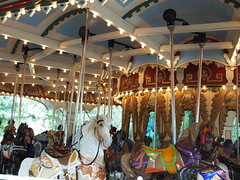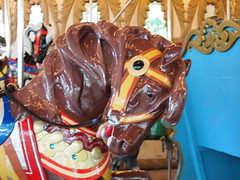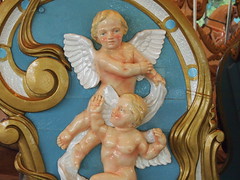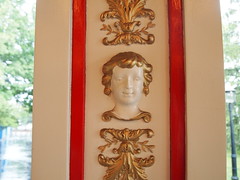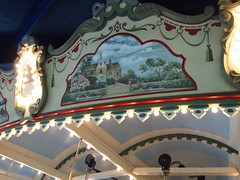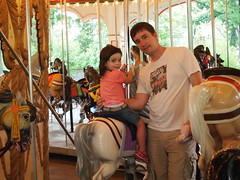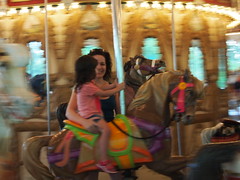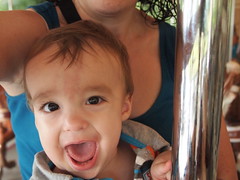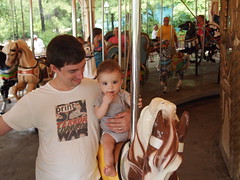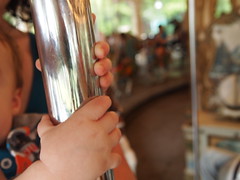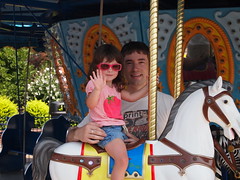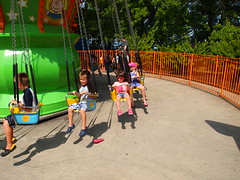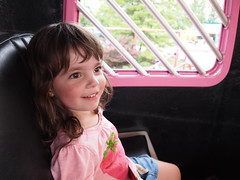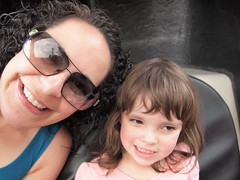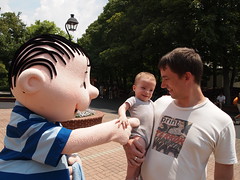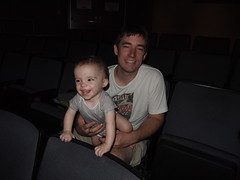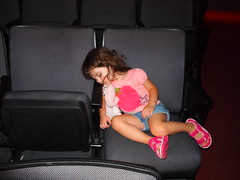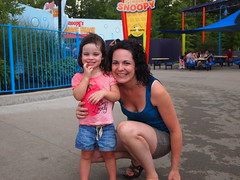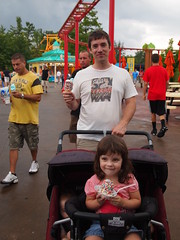I have long loved carousels, believing them to be the most elegant of amusement park rides. The Grand Carousel at Kings Island was built in 1926 and I remember, even as a little girl, imagining those in the late 1920s and early 1930s riding it—children, adults, everyone happy.
The carousel is painted with more than 20,000 sheets of 23-karat gold and 1,000 sheets of sterling silver—I love the painted scenes and as a young girl I spent many a hot summer afternoons dreaming about living in them.
We sought shelter under the carousel during a long thunderstorm. Two older men were operating the ride—and beautifully singing the old-fashioned words to the songs coming from the carousel’s organ into their microphones. They both acknowledged the fact that we kept getting off the ride and getting back on. Because the ride was quite empty they insisted we just stay on for the duration of the storm. Sophie loved this.
As did the boys.
I think we rode the carousel at least six times. Maybe more.
And if you count the smaller one in the kid area, well, it was probably close to 20.
Sophie still talks about the carousel, almost daily. She likes to play “Kings Island” in our entry at home, although she often calls it “Kings Land.” We sit on the area rug and pretend we’re on the horses, going up and down, or on another ride, going “super fast.” Grandma is particularly good at this game.
I see so much of myself in Sophie. Especially, though, when she’s doing things I did as a little girl, such as riding the Grand Carousel. Maybe it’s the memories. Maybe it’s what happens when you’re a mother. Maybe it’s just the cyclical nature of things, which Joni Mitchell put so well: “And the seasons, they go ’round and ’round. And the painted ponies go up and down. We’re captive on the carousel of time. We can’t return, we can only look behind from where we came. And go round and round and round in the circle game.”
“You don’t really understand human nature unless you know why a child on a merry-go-round will wave at his parents every time around—and why his parents will always wave back.” —William D. Tammeus


